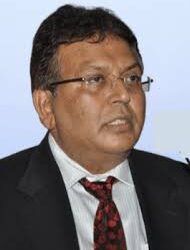A. Ayyasamy
It all started with a judgment delivered by the Supreme Court on March 20, banning immediate arrest of persons charged under the provisions of the Scheduled Castes and Scheduled Tribes (Prevention of Atrocities) Act. The judgment has also paved the way for anticipatory bail if no prima facie case has been made.
This judgment has led to violent agitations by the Scheduled Castes and the Scheduled Tribes brothern all over India, particularly in the BJP ruled states. The protests were so massive and furious that the authorities were stunned. On the whole as many as nine people are reported to have been killed not to speak of scores who have been injured. It looks as if all the theatrical efforts of Narendra Modi to appropriate Dr. Babasaheb B.R. Ambedkar legacy including the nomination of a dalit president have been of little avail.
What is being witnessed today, aver concerned observers, and is fury that has been pent up for years. Though as many as 40, 801 cases of atrocities against dalits were registered across India, not much came out this. Then came Vemula’s case in which the BJP tried to rub salt over the wound by questioning the very dalit identity of the youth.
The Supreme Court on its part maintained that there was no malafides in its act. It is believed that the judges Adarsh Kumar Goel and Uday Umesh Lalit are predisposed towards safeguarding the individual’s right to life and liberty, protecting them from possible abuse of power by the police. They confirmed that they have noted several instances of abuse of the Act at all levels, to settle private scores. They also said that they relied on statistics which showed that the conviction rate was a mere 25 per cent in the cases filed under the Act. Supreme Court lawyer Amit Anand Tiwari, who was an amicus curiae in the case, agreed that human rights must be safeguarded at all costs. The Centre, too, voiced its support for the provision of anticipatory bail in what were thought to be genuine cases.
However, those who are against these guidelines being incorporated in the judgment, say that they have weakened the statute which was passed after a long struggle to protect the SC and ST communities from the unwanted fury of the upper caste people. Dalit activist Ashok Bharti has questioned the very propriety of the apex court changing the law, without consulting any of the community representatives. The opinion of the National Commission for Scheduled Castes and the National Commission for Scheduled Tribes ought to have been sought before modifying the existing Act.
Those who bandy about numbers point out that in 2015, out of 15638 cases decided by the courts, 11024 resulted in acquittal or discharge, 495 were withdrawn and only 4119 resulted in conviction.
Activists, on the other hand, do not dispute the statistics. Their contention, however, is that the low rate of conviction is the result of faulty investigation and shoddy prosecution. Another activist Annie Raja agrees with this reasoning and feels that the changes will lead to delay in doing justice to the victims. Already, in ninety nine cases out of a hundred, when a dalit man or woman takes a complaint to a police station, the person does not even get a patient hearing. Often the tables are turned against the complainant and a case is filed against him or her. There have been innumerable instances where the police have collided with the offenders. If the victim starts questioning, he or she gets a raw deal and is subjected to police brutality. Even murders of dalits being covered up are not unknown in our country.
On the whole as many as nine people are reported to have been killed not to speak of scores who have been injured. It looks as if all the theatrical efforts of Narendra Modi to appropriate Dr. Babasaheb B.R. Ambedkar legacy including the nomination of a dalit president have been of little avail.
The court however keeps emphasizing that all that has been done is to safeguard the innocent persons from arrest. The Centre’s plea for a stay of the judgment has been turned down, and it has filed a review petition.
The dalit leader Jignesh Mevani who has won an election to the Gujarat assembly, asserts that the dalits are angry because of the prevalent feeling of the denial of justice. He quotes the case of Rohit Vemula as an instance – an undeniable one at that. He goes on to accuse that Brahminical forces seem to be taking the upper hand, which is bad for the entire nation.
Reverting to the present developments, Mevani is sure that without these vehement protests the Central Government would not have filed a review petition. He is firm that caste problem does not concern only dalits. Eerily echoing what Periyar said more than half a century ago Mevani asserts that without abolishing the caste system, a new India cannot be created. As for the present case, he calls on the people of India not to uphold the Supreme Court ruling, and stand with the exploited and the vulnerable lot. Even in the present form not much is achieved through the Act, since the conviction rates are abysmally low. In the villages, the ‘feudals’ do not the fear the Act much.
Ramdas Athawale of the Republican Party of India, who is the Union Minister of State for Social Justice and Empowerment, feels that the Government has reacted almost immediately. Yet he prescribes a few measures to allay the fears of the dalits once for all, as per which the government should spend 15 per cent of the budget on dalits must increase scholarships for dalit students, must give five acres of land to the landless dalits and must insist on reservation for dalits on promotions.
In Tamil Nadu, almost all the leaders have been agitated at the development and have given vent to their misgivings. (The reaction of Asiriyar Dr. K.Veeramani, President, Dravidar Kazhagam is recorded separately). M.K.Stalin of Dravida Munnetra Kazhagam has said but for its preoccupation with Cauvery issue Tamil Nadu would have flared at the Supreme Court verdict, which according to him, might result in a lot of damage to the dalit community. He wants the Act to be included in the IX Schedule of the Constitution so that no attempts will be made to tamper with it.







